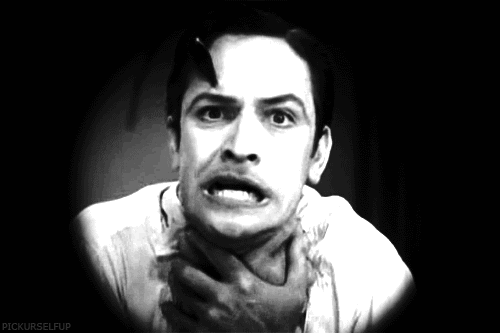Taken, like I am, with stories of transformation—I’ve always found the idea of Dr. Jekyll and Mr. Hyde to be very compelling. Take the duel nature of man and throw in the tragedy of a scientist out to make the world a better place having his own work lead him right down the path to hell and it becomes enthralling.
 |
| Robert Louis Stevenson |
Robert Louis Stevenson’s “Strange Case of Dr. Jekyll and Mr. Hyde” isn’t the prototypical “mad scientist” story (hello Mary Shelly and FRANKENSTEIN), but it is probably the second, beating H.G. Wells’ Doctor Moreau to the punch by about a decade. But then, it can be argued that Jekyll isn’t really that mad at all—just a scientist with too much faith in his work. It’s that same hubris, however, that puts him right there with Doctors Frankenstein and Moreau. They all had good intentions in the beginning.
 |
| The author intentionally did not include a "The" in front of the title--editors have since changed this. |
Stevenson’s intentions were his interest in the idea of personalities and how they affect humanity and how good and evil play into that. It’s said that after struggling with the idea for a few years, the story came pouring out of him in about three days. And rewrote it in under six days—one biographer claimed he was under the influence of cocaine and other biographers say it was mushrooms, while his wife and son claim he was merely sick at the time.
 |
| Advert for the stage adaptation |
Like Jekyll himself, the story seems focused on looking at human nature and the struggle between good and evil. Only Jekyll is seduced by his own pride into believing that he can make himself a better man by wholly removing his darker compulsions. This blinds him, initially about the nature of his other half and how not only was it checking him, but he was responsible for preventing the evils Hyde was now free to release upon the world.
The book was sold as a paperback initially in early 1886 nearly simultaneously in America and the UK and was an immediate success. Stage adaptations launched a year later in London and Boston and soon all across England.
 |
| Richard Mansfield is famous for his duel role in the original stage play |
Lots of audio recordings of the novella have been made—some of the more famous voices lent to the story are Tom Baker, Roger Rees, Christopher Lee, John Hurt and Ian Holm.
 |
| The Dell Comics adaptation of the novella |
The idea of Jekyll and Hyde has been adapted far beyond the stage to the big screen and small, to comic book and cartoon and everything in-between. It remains a great examination of the nature of man, a compelling tragedy and quite the entertaining yarn on days when one is shut in and even the sky threatens ones well being.
 |
| JOHN BARRYMORE in the silent film adaptation from 1920 |
 |
| FREDRIC MARCH and the award-winning make-up from the 1931 Pre-Code adaptation |
 |
| HYDE AND HARE from 1955 |
 |
| STAN LEE and DON HECK'S adaptation for MARVEL COMICS in JOURNEY INTO MYSTERY #99 from 1963 |
 |
| THE GHOST OF MR. HYDE from SCOOBY-DOO WHERE ARE YOU? from 1969 |
 |
| MOORE and O'NEILL'S version of JEKYLL & HYDE in League of Extraordinary Gentlemen |
In parting, here's an... interesting animated Australian adaptation of the tale from 1986...
Here's the Spencer Tracy adapation from 1941...
The John Barrymore silent era adaptation from 1920...
Now, I really recommend the Fredric March adaptation above all others as it seemed to hit all the right notes. Find it on DVD or streaming if you can.
But, of course, you can get the audiobook for free here:
and here:
and here:
Or via this site:
Good day...



No comments:
Post a Comment